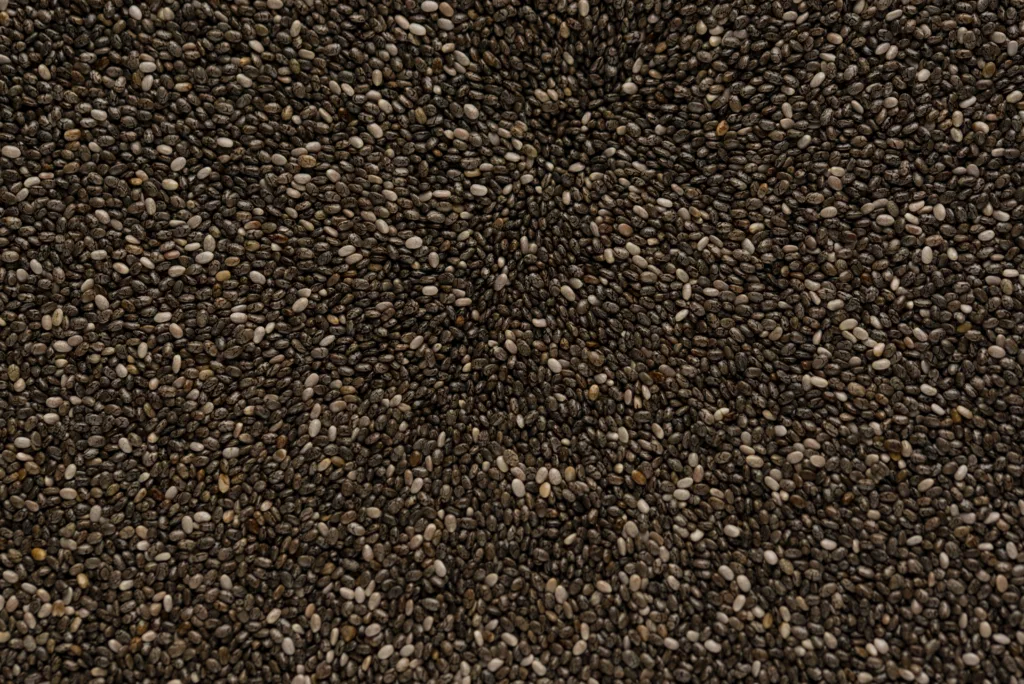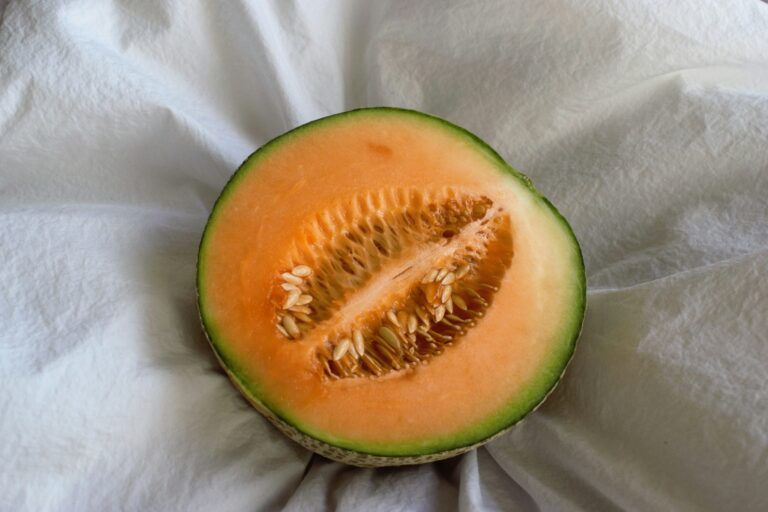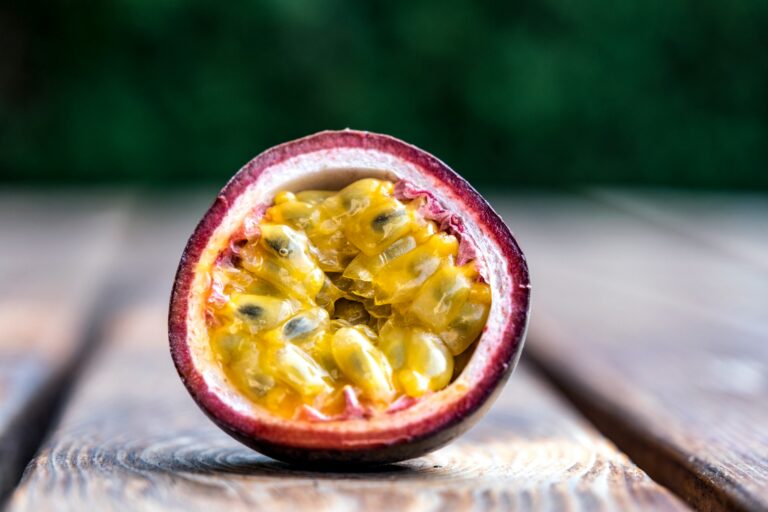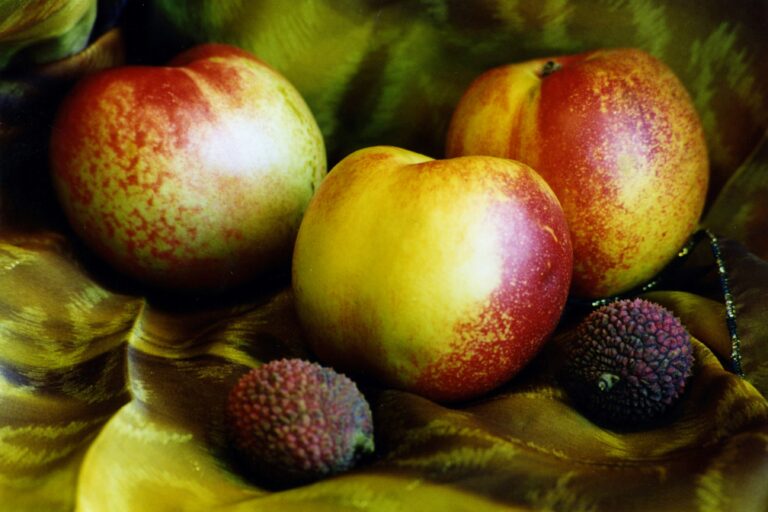The scientific name of Chia seeds is Salvia hispanica. Chia seeds are also known as Salba or Mexican Chia. Chia seeds are native to America in the Southwestern United States. In the Urdu language, chia seeds are known as Tukhm-e-Sharbat. Mexico, Bolivia, and Ecuador are countries that have been producing Chia seeds for hundreds of years. These are best in terms of optimum conditions and the most nutritious Chia seeds. Chia seeds are also cultivated on a small scale in its ancestral homeland of central Guatemala and Mexico.
Color: Chia seeds usually have white and black color, brown Chia seeds don’t have the same nutritional value.
Shape: The shape of Chia seeds is oval, slightly bigger than Sabja seeds, and much like poppy seeds as well.
Size: 1 mm wide and 2 mm long. Chia seeds also range from 2.1 mm and 1.3 mm. Chia seeds are generally very small
Flavor: Chia seeds have a mild and nutty flavor. Black chia seeds have a more robust flavor than white seeds but black ones are more nutritious.
Nutrients
Chia seeds are very beneficial and important for human beings as they are fully packed with nutrients. They are perfectly edible. Chia seeds are rich in numerous minerals but their most important and excellent source of nutrients are Omega 3 fatty acids. Some of them are followed as
- Calories 138 kcal
- Carbohydrates 13.07 g
- Protein 5.6 g
- Fats 8.4 g
- Fiber 11.2 g
- Calcium 14 % of the Daily Value
- Zinc 12 % of the Daily Value
- Sugar 0
| How to grow chia seeds? |
Healthy Benefits of Chia Seeds
Chia seeds are delicious, nutritious, and easy to enjoy in a number of different recipes. Chia seeds promote intestinal health, and heart health and reduce cholesterol levels. Some of the beneficial effects of Chia seeds are described below:
Improve heart health
Chia seeds are high in fiber, which can help to lower high blood pressure and, in return, reduce the risk of developing heart disease. Chia seeds contain an antioxidant that aids in decreasing the life killing/threatening diseases such as heart disease
Reduce inflammation
Chia seeds contain an antioxidant which is Caffeic acid, which can help to fight inflammation in the body. Eating Chia seeds regularly may also help in reducing inflammatory markers which are often the symptoms of the presence of inflammatory diseases.
Better bone health
Chia seeds have several beneficial nutrients and minerals such as potassium, phosphorus, magnesium, and calcium. According to the research, a single ounce of chia seeds contains 18% of the recommended daily need for calcium. Calcium plays a vital role in nerve functioning as well as in bone and muscle health. Chia seeds have more calcium than dairy products.
Maintain blood sugar level
Chia seeds are rich in fiber that helps in reducing the risk of metabolic syndrome, insulin resistance, and type 2 diabetes and improves blood sugar levels. Recent studies show that bread containing chia seeds trigger a lower blood sugar response than traditional bread, which helps to prevent high blood sugar level.
Weight management
The soluble fiber present in Chia seeds absorbs water, causing them to expand in your stomach and increase the feeling of fullness when you eat the Chia seeds. Despite eating, chia seeds can help you maintain a healthy weight. The fiber and protein in Chia seeds may benefit people who are trying to lose weight. Additionally, proteins present in chia seeds are effective in reducing appetite and food intake.
Reduced free radicals
Free radicals cause oxidative stress and cell damage. Therefore, antioxidants found in the Chia seeds help to fight against free radicals in your body. Antioxidant-rich food helps protect the body against cognitive diseases and also reduces the risk of developing many health issues including certain types of cancers and heart diseases.
Side effects of Chia seeds
Chia seeds contain fiber, so those who consume Chia seeds in larger quantities experience side effects such as diarrhea, constipation, intestinal gas, and bloating. Some of them face allergic reactions and digestive issues. People with diabetes, allergies, digestive issues, and high blood pressure may avoid chia seeds. Consuming many seeds may lead to gain weight. As they contain a large number of potassium, for this reason, are not recommended for patients on a renal diet.
FAQ
What are the chia seeds benefits?
Chia seeds are rich in numerous minerals but their most important and excellent source of nutrients are Omega 3 fatty acids and they are also rich in fiber. Chia seeds help to lower cholesterol levels, support heart health, and enhance digestive health.
Can I drink chia seeds every day?
Chia seeds are a great supplement to a balanced diet if you consume them in moderation. However, moderation is essential because eating too many could have harmful effects. Start off each day with 1 ounce (28 grams) to avoid this.






